So now we know what Britain’s great green economy looks like. First, the good news: construction of electric cars in Britain increased by 4.5 per cent in 2022 to 234,066 vehicles. Now the bad news: overall car production slumped to its lowest level since 1956, with just 775,014 units rolling off the production line.
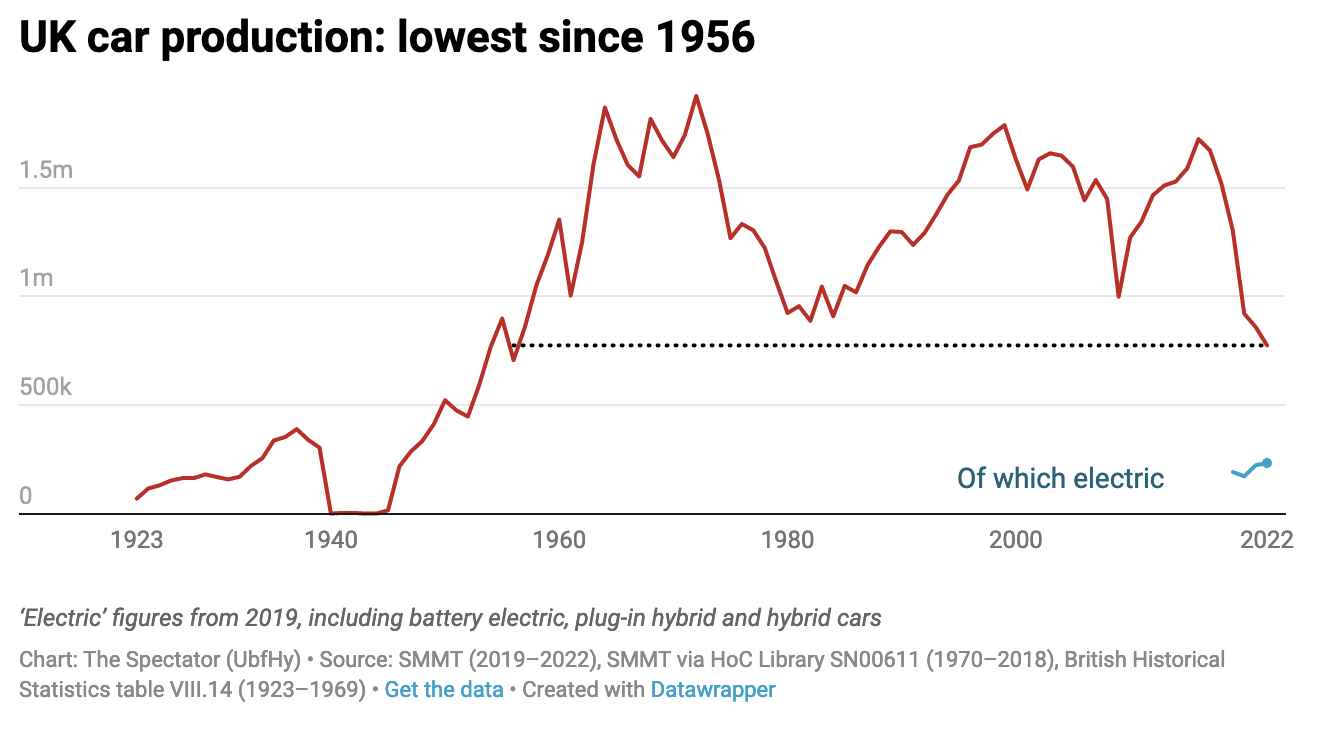
Britain may be leading the world when it comes to setting targets for decarbonisation, but it isn’t helping us to even maintain our manufacturing industry, let alone to turn us into a hotbed of ‘green growth’. The next government target to hit the industry is the Zero Emission Mandate, which will oblige UK producers to make a certain percentage of their vehicles as pure electric models (we don’t yet know what percentage).
This will certainly hasten the end of production of petrol and diesel cars in Britain. Whether it will help the electric car industry is another matter. As for trying to blame Brexit, don’t bother: the slump in car manufacturing is a Europe-wide phenomenon, with total vehicles produced tumbling from a peak of 14 million in 2017 to 9.9 million in 2021.
Globalisation has brought us wonders; it has also brought us some very big headaches
The slump is not just a result of environmental policy driving up the expense of manufacturing in Europe and driving production abroad – although that is part of the story. It also has a lot to do with the problems of trying to source microchips during the pandemic. Indeed, the shortage of chips should be ringing alarm bells because it has exposed just how much production is concentrated in one part of the world.
Take semiconductors as a whole and the US and Europe have a sizeable slice of the market. But look at the highest grade of semiconductor – those with elements of printed circuit less than 10 nanometres across – and the global market is concentrated overwhelmingly in the hands of a single company: the Taiwan Semiconductor Manufacturing Company. The company produces 90 per cent of them. Almost all the rest are produced by Samsung.
And if China were to invade Taiwan? It would create far more havoc than Russia’s invasion of Ukraine. While Europe’s energy market was upended by the loss of Russian gas – first through sanctions and then by Russia chopping off Nord Stream 1 – we did at least know where to go to look for alternative supplies: a year on and imports of liquified natural gas from the US and Qatar have surged.
But if we lost Taiwanese semi-conductors? The whole economy runs on them. It is hard to name a product now which is not stuffed with them. We were caught out with Russian gas; somehow the West is going to have to work out a strategy for coping without Taiwanese microchips. Globalisation has brought us wonders; it has also brought us some very big headaches.
Got something to add? Join the discussion and comment below.
Get 10 issues for just $10
Subscribe to The Spectator Australia today for the next 10 magazine issues, plus full online access, for just $10.


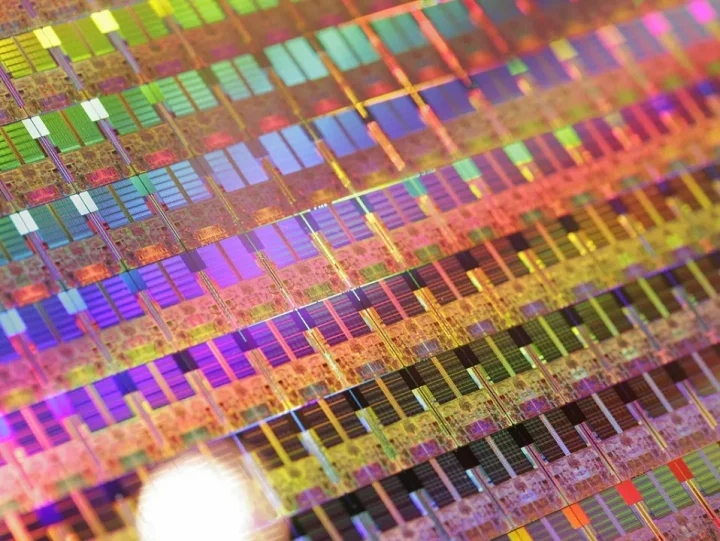




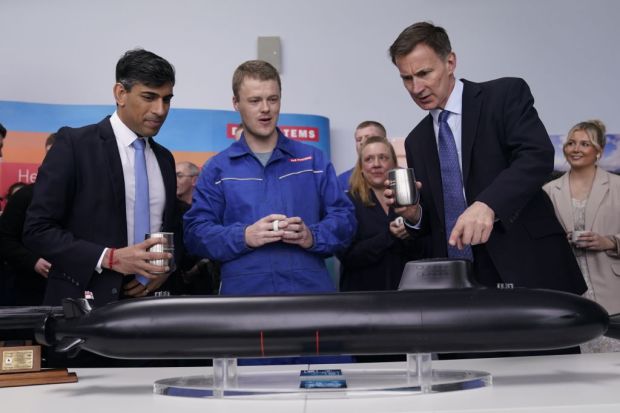
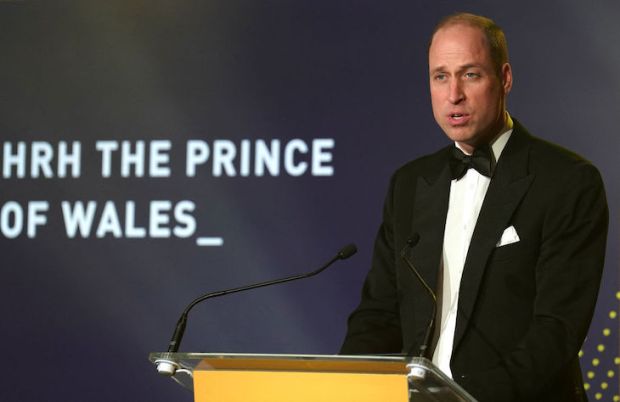







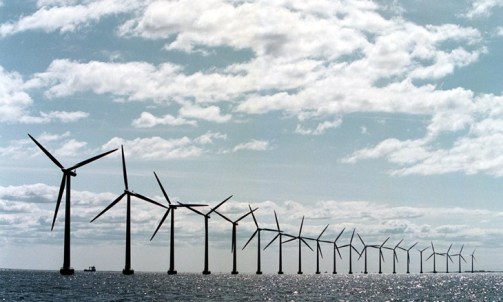




Comments
Don't miss out
Join the conversation with other Spectator Australia readers. Subscribe to leave a comment.
SUBSCRIBEAlready a subscriber? Log in